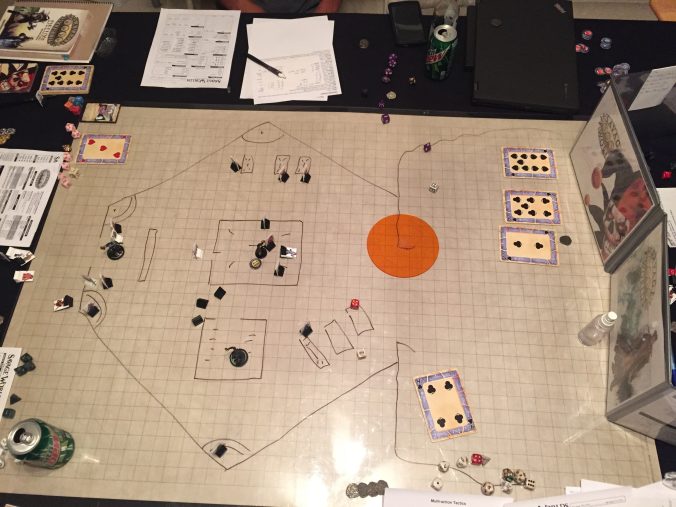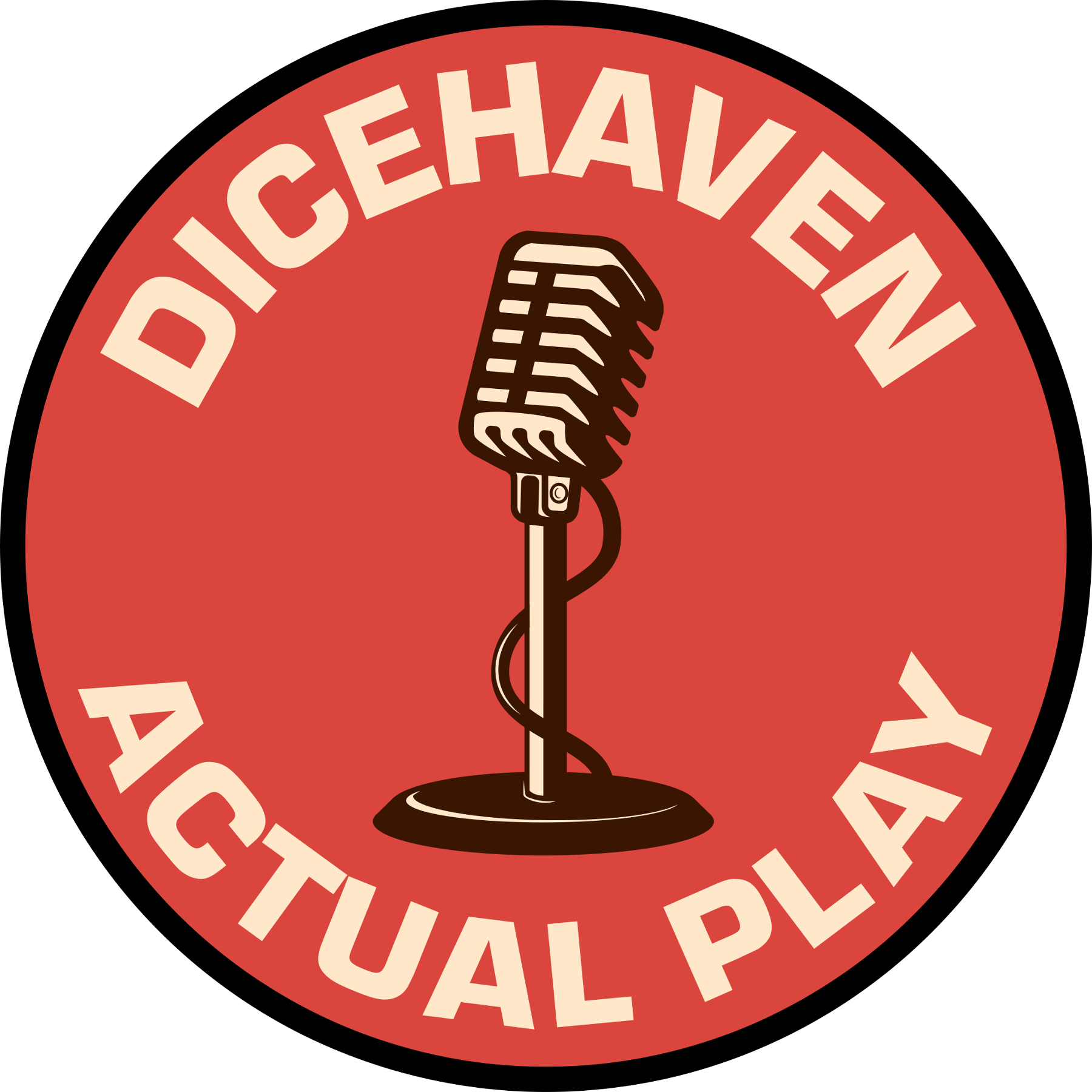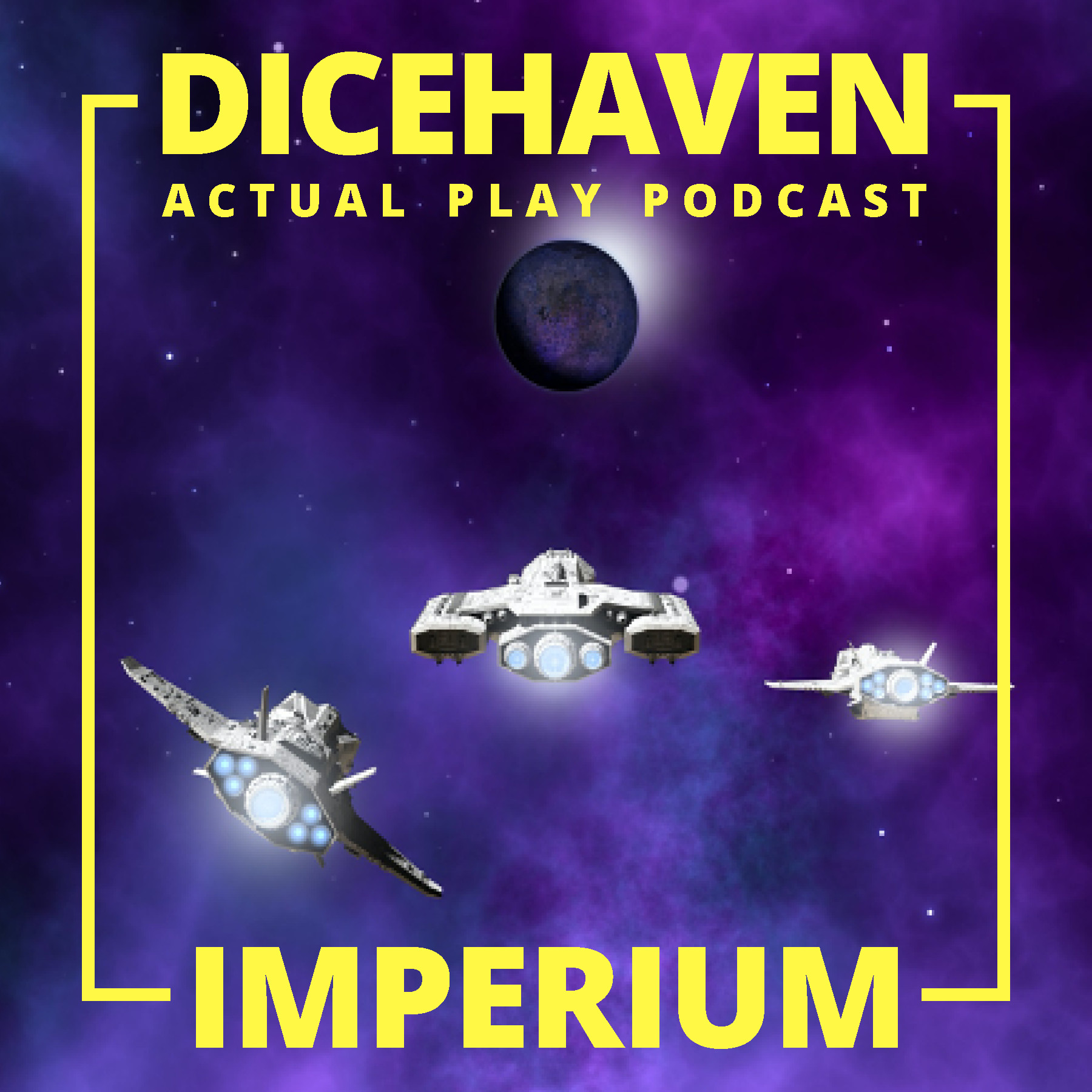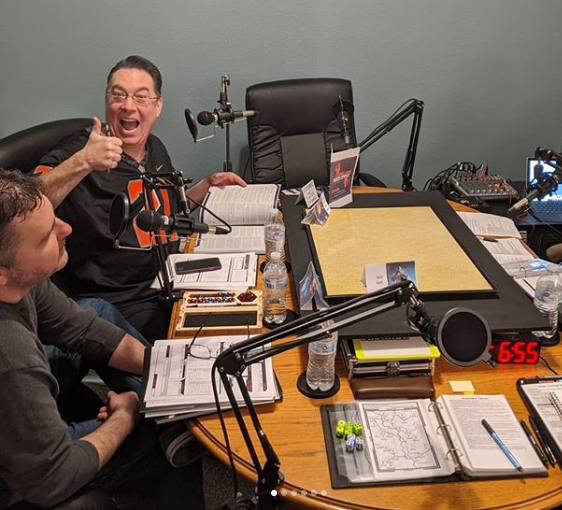I’ve played Savage Worlds off and on for many years. Along the way I’ve learned a few things, and I’ve also seen helpful tips on the various Savage Worlds forums on how to speed up your game and make things run more smoothly. Here are the top tips I have for anyone running a Savage Worlds game.
Use Faster Initiative
Using cards for initiative and dealing them each round can definitely slow things down if the GM is doing all the work. Here are three ways you can speed things up significantly.
Method 1: Turn-master with Pre-Dealt Cards
Appoint a turn-master who deals and shuffles all cards. The turn-master has two decks of cards (each a distinct color or style) and a list of all player Edges which effect initiative and number of cards drawn.
Cards are dealt and placed face-up on the edge of the black 3×3 table (GM places NPC and monster cards on edge of GM screen or on the GM edge of the 3×3 table). As players and the GM turn in their card at the beginning of their turn they are immediately dealt their next initiative’s cards, face-down. When a joker is revealed the turn-master switches to the second card deck for future dealt cards, shuffling the previous deck once all cards are turned in from the current round. When a new turn begins, players and the GM just flip over the card they already have.
Method 2: Phase Initiative
Appoint a turn-master with two decks as described above.
At the beginning of a game, pre-deal a card face-down to each player, taking edges/hindrances into account. When combat begins, players flip over their cards. Any character who has an 8 or above goes in the ‘Fast’ phase (going clockwise around the table). Then the bad guys go in the ‘Normal’ phase. Then, everyone with a card lower card that 8 goes in the ‘Slow’ phase (going counter-clock-wise around the table). Consider raising the 8 threshold to something higher if the opposition is particularly quick. As players take their turn, they turn in their card, and the turn-master deals them another card face-down. On each new round, the cycle continues, with players flipping over their pre-dealt cards, and getting new cards face-down on their turn.
Method 3: d20
Roll a d20. Roll it again for any additional card you would receive through edges. Consider a nat 20 to be a joker. On ties, roll-off or find another way to break the tie.
Cap Wounds at 3
Getting one-shotted by several lucky raises can be a bummer. Unless you’re wanting a more lethal setting, capping wounds from any attack to 3.
Use Single-Die NPCs
Create NPCs on the fly by assigning them a d6, d8, or d10 for all their traits. Average enemies are a d6, a boss is a d8 or a d10. I like to have a cheat sheet with a list of a few key Edges and the most common weapons for the setting so I can assemble an NPC on the fly without flipping through a book.
Another approach is to have a few archetype enemies ready to go. For example, in an Urban Fantasy setting you might have Melee Guy, Long Range Guy, Shotgun Guy, and Magic Guy.
Balance Encounters (But Not Really)
Savage Worlds plays more like old school D&D than the modern D&D and Pathfinder games where encounter balance is a consideration. Exploding dice and bennies create big swings in encounters.
That being said, to create an encounter that is challenging but not a certain TPK, do this: Use two d6 non-wildcards per player and one d8 boss (either a non-wildcard or a wildcard). For a big boss stat them out with a few abilities that are more directed at causing penalties than damage.
Use Checks and Chases
Ignore the advanced vehicle rules and just use a series of simple driving checks or use the Chase rules instead.
Encourage Player Discipline
In general, experienced players will make for a faster game. Have cheat sheets for players and take time to make sure everyone understands the rules.
In play, other ways to force a bit of discipline on players to speed things up:
- Ask players to pre-select the dice they are going to roll before their turn. I’ve timed it, and this is surprisingly a big time sink!
- If the players has analysis paralysis, use your fingers and count down from 5 to 1 to create a sense of urgency (if you hit zero, the player’s turn is delayed till the end of the round). An exception is if a player has a rules question.
- Encourage players to have a default combat action. If they can’t think of what to do, they are encouraged to use their ‘I hit it with my axe’ type action.
- If a player struggles with the ‘mini-math’ involved in calculating raises, print out a raise calculator so they can look at a chart to figure this out quickly.
Simplify Minor Encounters, Focus on Boss Fights
Consider using Dramatic Tasks and Quick Encounters more often. This is a bit more like a montage in 13th Age. If you narrate and encourage good story telling moment, it’ll encourage involvement and move the story along. Save the miniatures and set piece battles for big moments.
Deal Fatigue on Failed Checks
Remember that Fatigue is there as another way to represent exhaustion and minor wounds. Looks for opportunities to deal fatigue — a failed check on a long horse ride, a failed check when leaping down from a height, or a failed check after a hard march.
Use Morale Checks
If half of the extras or a leader have gone down, make spirit rolls for all the remaining extras to determine if they flee or not.




Leave a Reply